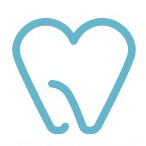Ultrasonic Teeth Cleaning | Give yourself a brand new smile with a clean set of teeth!
Want to be a qualified foodie? Then having good teeth is a must-have condition to eat all kinds of delicious food. But do you know? Smoking, drinking tea and coffee, eating crayfish, eating spicy hot pot, etc. will increase dental calculus, make teeth yellow, and seriously affect our appearance and dental health. Although we brush our teeth and rinse our mouth diligently, brushing multiple times is only a temporary solution.
Dental plaque, stains, and calculus deposited on teeth cannot be completely cleaned by regular brushing and rinsing. So, it's time to give your teeth a bath! Start with caring for your oral health!
Dental Cleaning Tips
Question 1: Will there be bleeding during dental cleaning?
If there is bleeding during regular tooth brushing, there is most likely to be bleeding during dental cleaning, which is directly proportional to the amount of calculus and the degree of gingival inflammation.
Question 2: Will dental cleaning cause an increase in tooth gaps?
Dental calculus deposition leads to gingival and periodontal inflammation, and the alveolar bone has actually undergone almost irreversible recession, but it is not noticed due to inflammation and edema. After dental cleaning, the gingiva returns to its normal state, which is the state of recession, causing the illusion that the gingiva has receded due to dental cleaning.
Question 3: Does scaling cause teeth to loosen?
Regular scaling does not cause teeth to loosen. The accumulation of tartar compresses the gums, leading to bacterial growth and alveolar bone resorption, which cannot effectively fix your teeth. However, because tartar attaches to the teeth, you do not feel any looseness. Once the tartar is removed, you will feel the teeth loosen.
Question 4: Do teeth get dirty faster after scaling?
After scaling, the surface of the teeth may feel rough and not smooth. If you do not pay attention to your diet, it may actually be easier for bacteria to accumulate, giving the illusion that the teeth become dirtier after scaling! After scaling, a regular hospital will perform polishing for patients, which is to make the tooth surface smoother.
Question 5: Does scaling damage the tooth surface?
Enamel is the hardest tissue in the human body, and scaling is done by vibrating and cleaning the tartar with an ultrasonic scaler. The cleaned tartar comes off in chunks, not powdered, which proves that it is vibrated off rather than ground off.
Question 6: Can scaling cause infectious diseases?
The equipment used in tooth cleaning, such as the handle and working end, are sterilized and disinfected separately for each person. After use, they are sterilized with high temperature and pressure, and finally packaged aseptically. Other disposable instruments or medical waste will be directly discarded and professionally handled. Cross-infection will not occur in regular hospitals and clinics.
Question 7: How often should tooth cleaning be done?
Generally, it is done every six months to one year. You can consult the doctor about the specific frequency based on your own situation during tooth cleaning.
Question 8: Why do teeth remain sensitive after tooth cleaning?
After tooth cleaning, the dental calculus is removed and the tooth tissue is exposed. For patients with gum recession, some tooth roots may be exposed, resulting in varying degrees of sensitivity. For individuals with healthy periodontal tissues, the sensitivity is usually mild and will disappear in a few days.
Three parts destiny, seven parts maintenance. After ultrasonic tooth cleaning, you should also brush your teeth seriously! Do you know how to brush your teeth properly?
▲ Tilt the toothbrush at an angle of about 45 degrees, gently press and make the toothbrush enter the gingival sulcus.
▲ Note that brushing should be done with an upward motion for the upper teeth and a downward motion for the lower teeth.
▲ Comprehensive cleaning, both inside and outside, moderate strength, thorough brushing, effective action
▲ Use a toothbrush with relatively soft bristles to protect the enamel. Toothpaste helps to clean the teeth, but its role should not be overstated.

